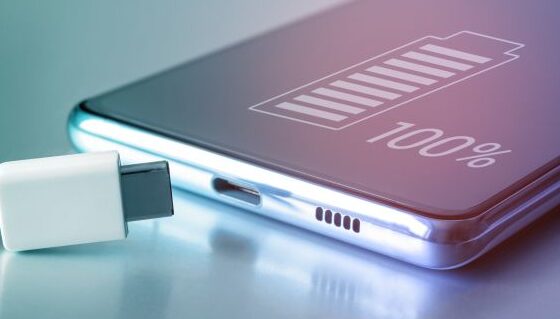BTN News: In 2024, the smartphone has transitioned from a luxury item to a daily essential for millions around the globe. Whether used for work meetings, staying connected with loved ones, or even entertaining children, cell phones have become indispensable. But while users spend hours on their devices, many neglect one crucial aspect—their battery’s health.
As experts have pointed out, simple adjustments to charging habits can make a significant difference in prolonging the life of your phone’s battery. Maintaining your smartphone’s charge between 20% and 80% is key, as well as avoiding practices like letting the battery drain to 0%. In this guide, we’ll break down the most effective ways to extend your battery’s lifespan, highlighting best practices and busting common myths about overcharging and overheating.
Why Battery Health Matters: Protecting Your Device’s Lifespan
The lithium-ion batteries powering today’s smartphones are designed to work optimally within specific temperature and charging ranges. However, many users unknowingly reduce their device’s battery life through bad charging habits. One critical factor is avoiding extremes—both allowing your phone to dip below 20% and charging beyond 80% can cause long-term damage to the battery’s cells.
Modern smartphones are equipped with features designed to protect against these issues, like optimized charging, but it’s important to adopt mindful practices that extend the device’s life even further.
Key Charging Tips to Maximize Battery Longevity
- Charge in Short Intervals: Instead of letting your phone charge overnight or allowing it to drain to low levels, try charging it in short bursts throughout the day. Maintaining a charge between 20% and 80% keeps your battery within the ideal range, reducing stress on its components.
- Unplug at 80%: Overcharging is a common issue that occurs when phones remain plugged in after reaching full capacity. Some phones now offer “optimized charging” features, which pause the charge at 80% and finish the last 20% right before you’re likely to unplug it. This feature prevents overcharging and extends battery health.
- Use Original Chargers: It might seem convenient to use third-party chargers, but always stick with the manufacturer’s charger for optimal efficiency and safety. Non-original chargers could damage your phone’s battery and lead to overcharging or overheating.
The Risks of Overcharging and Overheating
Leaving your phone plugged in overnight has been a widespread practice, but it’s not doing your device any favors. After reaching full charge, the continuous flow of power can cause your battery to overheat, leading to long-term performance issues or even safety hazards like battery swelling.
The risk of overheating isn’t just limited to charging habits. External factors like leaving your phone exposed to high temperatures—such as in a hot car—can also affect the battery. Heat causes the battery to work harder, which can wear down the internal chemistry of lithium-ion cells.
Myth-Busting: The Truth About Phone Charging
There are a lot of myths surrounding smartphone charging. One common misconception is that letting your phone battery drop to 0% and then charging it back to 100% is good for its health. This practice, however, can actually damage your battery over time. Repeated deep discharges cause the battery to degrade faster.
By sticking to the 20%-80% rule and avoiding extremes, you can greatly extend the life of your phone’s battery.
Advanced Features: Optimized Charging
Some phone manufacturers have taken user concerns seriously and integrated smart charging features into their devices. One of these innovations is “optimized charging,” which is designed to prevent overcharging. This feature halts the charging process at 80% and resumes when it detects that you are about to unplug the device, typically around the time you wake up. This way, the battery is not left under stress for long periods, which can shorten its lifespan.
Additional Ways to Protect Your Phone’s Battery
In addition to managing how you charge your device, there are other steps you can take to protect your battery:
- Avoid High Temperatures: Keep your phone away from direct sunlight or hot environments to prevent overheating. Heat can significantly impact the battery’s chemistry and cause it to degrade faster.
- Don’t Use While Charging: Using your phone while it’s plugged in can cause the battery to heat up quickly, which may lead to performance issues. For best results, let your phone charge without interruptions.
- Invest in Protective Cases: Choose phone cases that offer thermal insulation. This will help prevent your phone from overheating, particularly during long usage periods or in hot climates.
Conclusion: Small Changes, Big Results for Your Battery
Preserving your phone’s battery life doesn’t have to be complicated. By following simple guidelines, such as keeping the charge between 20% and 80%, avoiding extreme temperatures, and utilizing optimized charging features, you can greatly extend the longevity of your device. As smartphones continue to evolve, so do the best practices for maintaining their performance. With mindful charging habits and the right tools, you’ll be able to keep your device running smoothly for years to come.


